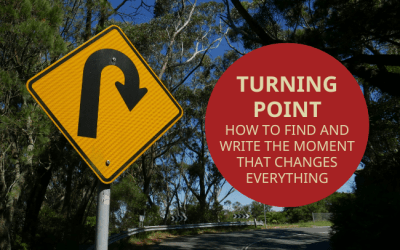Where is the turning point? It sounds like a simple question, but the answer is more complicated than you might expect. If your pacing feels off, check your turning point against these two guidelines.
The Editor’s Blog
Learn how to edit your novel with this library of resources.
Read or listen to expert articles on the editing process.
Plus, download free worksheets and guides to help you edit your novel!
Turning Point: How to Find and Write the Moment That Changes Everything
The turning point is the moment that changes everything. Get it right, and the climax is inevitable. Get it wrong, and everything falls apart. Here’s the simple framework that makes the turning point work.
The Hidden Half of Your Protagonist’s Goal (That Makes Story Structure Work)
Your protagonist’s goal drives the story. And this deceptively simple goal framework will tie your entire story structure together.
Where Progressive Complications Go WRONG (and How to Fix Them)
Bored readers. Disconnected scenes. Endless filler. If your messy middle feels like a black hole of momentum, you’ve probably fallen into a progressive complication trap.
Make Sense of Your Messy Middle With the Most Underrated Story Element
Don’t pack the messy middle of your story with filler. Escalate the tension with propulsive progressive complications.
Inciting Incident: How to Revise an Unputdownable Beginning
A great inciting incident hooks your readers and sets up everything to come, laying the foundation for a brilliant surprising, yet inevitable climax that your readers will love. Here’s how to revise it to excellence.
Ask This Question When You’re Overwhelmed by Your Story
Escape analysis paralysis with one powerful question. It’s deceptively simple—and yet it unlocks everything.
How Taylor Jenkins Reid Crafts an Exceptional Opening Scene
Want to master writing excellent scenes? Study excellent scenes to find out how they work. Here’s what makes the opening scene of The Seven Husbands of Evelyn Hugo stand out—and how you can draw inspiration from it to craft an exceptional scene of your own.
2 “Showing” and “Telling” Ways to Convey Time Passing in Your Novel
Your characters feel time passing in your story. But your readers won’t—unless you tell them how much time is passing and show them why that matters. Use these techniques that blend telling and showing to make time matter to your readers the way it does to your characters.
3 “Telling” Ways to Convey Time Passing in Your Novel
The passage of time seems intuitive. It just happens, right? But in reality, unless you tell your readers how time is passing in your novel, they won’t know. Use these techniques to keep your readers grounded in your story so they know exactly when everything happens.










